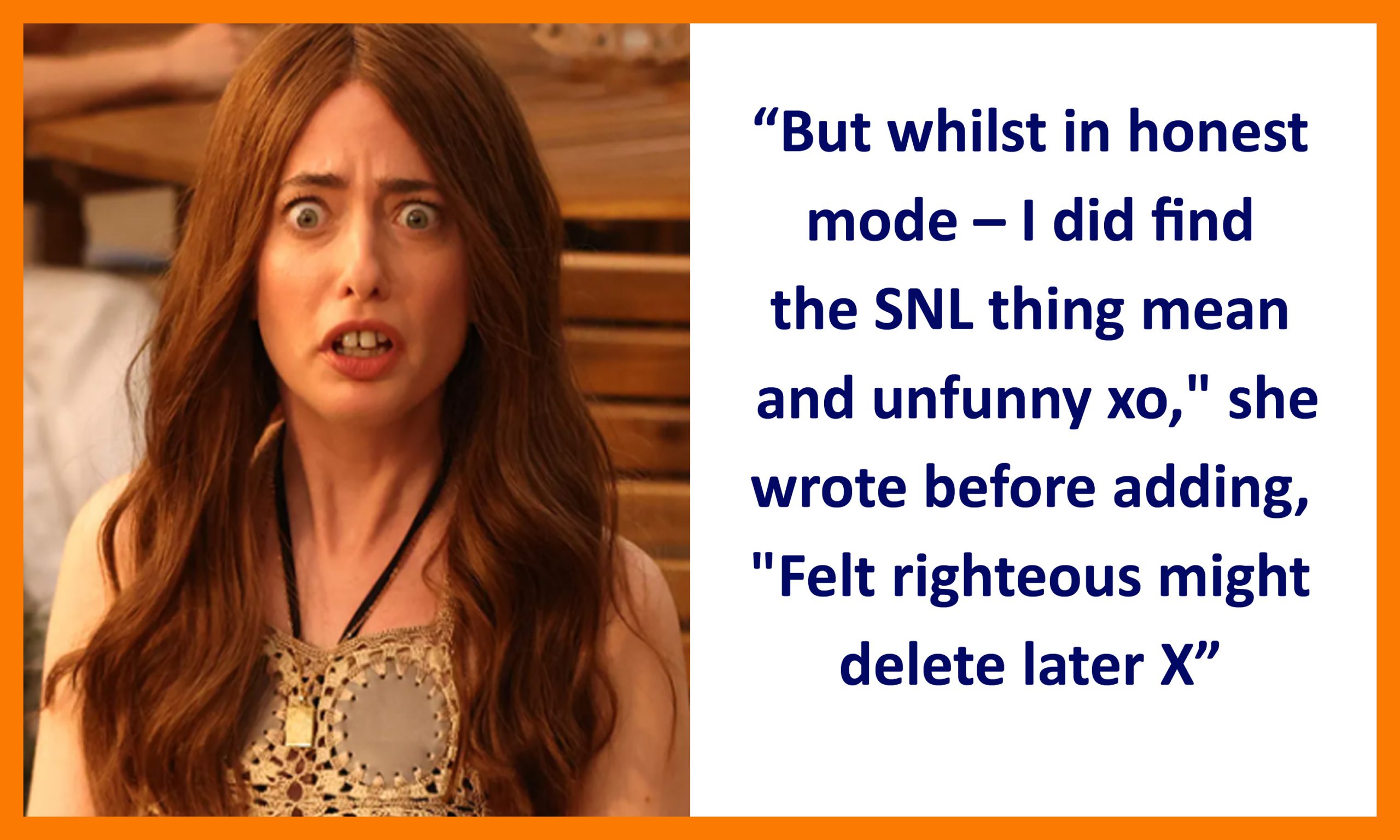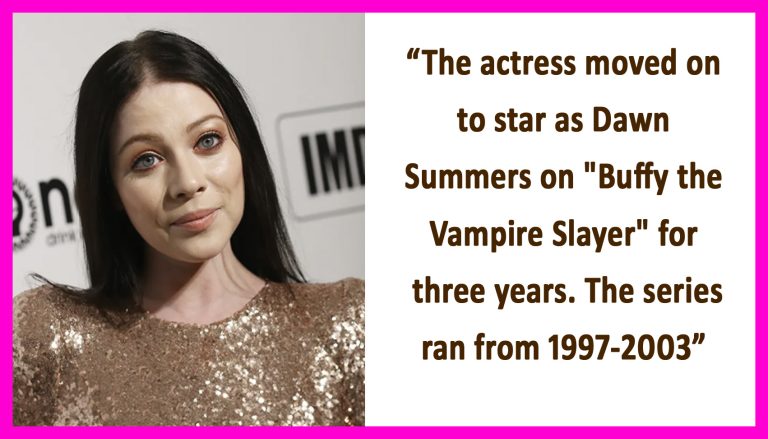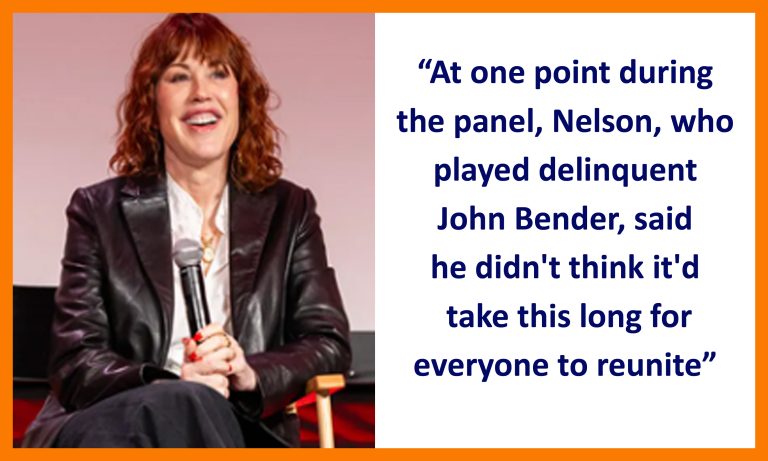‘White Lotus’ Star Slams ‘SNL’ Over ‘Mean’ Parody
In the world of entertainment, parodies are often seen as badges of honor—proof that you’ve made a cultural impact worth spoofing. But not all satire lands with laughter. For one of HBO’s breakout stars from The White Lotus, a recent sketch on Saturday Night Live (SNL) crossed the line from funny to flat-out mean, sparking a heated conversation about where humor ends and cruelty begins.
The Incident That Sparked a Backlash
It all began during a widely watched episode of Saturday Night Live, when the long-running sketch show aired a parody of The White Lotus, focusing particularly on one of its most beloved and eccentric characters. The sketch, though comedic in intention, exaggerated the character’s quirks, voice, and physical mannerisms to the point of caricature.
Soon after the episode aired, social media buzzed with mixed reactions—some viewers found the parody hilarious, while others called it uncomfortable and disrespectful. But it was the response from the actor herself that brought the controversy into the spotlight.
Jennifer Coolidge Responds
Jennifer Coolidge, the Emmy-winning actress who played Tanya McQuoid in The White Lotus, took to social media to express her feelings. Known for her self-deprecating humor and ability to laugh at herself, Coolidge’s reaction was unexpected—but deeply honest.
In an Instagram story followed by a longer statement posted on X (formerly Twitter), Coolidge wrote, “I usually love a good parody, but that was just… mean. I’m all for poking fun, but it felt like the sketch was mocking me, not the character.”
She added, “I’ve worked hard to bring authenticity to Tanya. She’s weird, yes—but she’s also deeply human. That sketch flattened her into a joke. And frankly, it didn’t feel great.”
A History of Being the Punchline
This isn’t the first time Coolidge has found herself the subject of parody. Her unique voice, distinctive delivery, and flamboyant characters have long made her a favorite target for impressionists and comedians. From TikTok influencers to late-night hosts, many have attempted a Coolidge imitation, often with varying degrees of respect.
But what made the SNL sketch different?
According to fans and critics alike, the tone. While previous impersonations celebrated Coolidge’s lovable weirdness, this one appeared to ridicule it. Instead of capturing the heart behind the character, the sketch seemed to turn Coolidge into a spectacle—more of a punchline than a tribute.
SNL Under Fire (Again)
SNL is no stranger to controversy. Over its nearly 50-year history, the show has taken risks, tackled taboos, and pushed the boundaries of satire. But it has also faced criticism for being tone-deaf, outdated, and occasionally downright offensive.
In this case, the show’s decision to parody Coolidge—especially in such an exaggerated fashion—led to broader discussions about comedy’s evolving role. Can a sketch show rooted in impersonations thrive in a culture increasingly sensitive to issues of respect, inclusion, and representation?
Cultural critic Marissa Klein weighed in on the controversy, writing in The Atlantic, “Comedy should challenge, but not dehumanize. The Coolidge sketch felt less like satire and more like bullying masquerading as humor.”
The Sketch in Question
The controversial sketch aired during the second half of the episode, often a slot reserved for more experimental content. In it, a cast member impersonated Coolidge’s Tanya character, mimicking her breathy voice and over-the-top fashion choices. The sketch placed her in absurd situations—like misunderstanding a yoga class for an exorcism—and leaned heavily into stereotypes about clueless wealthy women.
Though the audience laughed, many viewers cringed.
“It felt like they were laughing at her, not with her,” one user posted on Reddit. Another wrote, “This just didn’t hit the mark. Tanya is a tragic character with real layers. Reducing her to a dumb blonde was lazy and unkind.”
Cast and Crew Weigh In
Neither the SNL cast member who played Coolidge nor the show’s producers initially responded to the backlash. But a few days later, an unnamed writer for SNL reportedly told Entertainment Weekly that the sketch was meant as a “light-hearted tribute.”
“We thought the character was iconic and ripe for parody,” they said. “We never intended to hurt Jennifer’s feelings. She’s a comedy legend.”
That response did little to calm the storm. In fact, some felt it missed the point entirely.
“If you’re going to parody someone, especially someone still alive and working, you need to do it with care,” tweeted film critic David Chen. “There’s a difference between satire and mockery. This was the latter.”
The Bigger Conversation: When Parody Goes Too Far
The Coolidge-SNL drama taps into a broader issue bubbling in Hollywood and beyond: How far is too far in comedy?
With shifting social norms and heightened awareness around mental health, body image, and identity, comedians and writers are being asked to tread more carefully. What was once considered “just a joke” is now subject to scrutiny, especially when the target of the joke feels hurt or misrepresented.
The rise of cancel culture has also complicated things. Comedians fear being “canceled” for offending the wrong group, while audiences are split—some miss the anything-goes humor of the past, while others demand comedy evolve alongside culture.
Coolidge’s criticism brings a fresh perspective to this debate. She didn’t call for a boycott. She didn’t demand an apology. She simply spoke her truth, articulating a feeling many performers may share but are hesitant to voice.
A Surprising Outpouring of Support
Following Coolidge’s statement, fans and fellow celebrities rallied to her defense. Actress Sarah Paulson commented, “You’re one of a kind, Jen. They could never capture your magic.” Comedian Chelsea Handler added, “I thought the sketch missed the point, too. You’ve always been the joke and the heart, and that’s what makes you brilliant.”
Even Mike White, creator of The White Lotus, subtly acknowledged the controversy in an interview, saying, “Tanya was never meant to be a caricature. She’s a complicated woman in a complicated world. Jennifer brought her soul, not just laughs.”
Comedy in the Age of Empathy
The uproar over SNL‘s sketch is more than a celebrity-vs-show spat. It reflects the growing pains of an entertainment industry trying to balance humor with humanity. As audiences evolve, so must the artists who perform for them.
Empathy doesn’t mean the end of comedy. It just means choosing your targets wisely—and punching up, not down.
Jennifer Coolidge has always been a good sport. Her career is filled with outrageous roles, hilarious one-liners, and a willingness to be the butt of the joke. But even the funniest people have limits.
And maybe, just maybe, those limits deserve to be respected.
Where Do We Go From Here?
The debate isn’t likely to end soon. In fact, it may just be getting started. As SNL approaches its 50th season, questions about its relevance, tone, and responsibility continue to grow louder.
Can it adapt? Can it still make people laugh without crossing lines? Or has the line itself moved so far that traditional sketch comedy can’t keep up?
For Jennifer Coolidge, one thing is clear: she’ll keep making people laugh—on her own terms. And for fans of The White Lotus, her words serve as a reminder that even the quirkiest characters deserve dignity.
As one viral tweet put it, “If you can’t parody someone without being cruel, maybe you’re just not that funny.”












